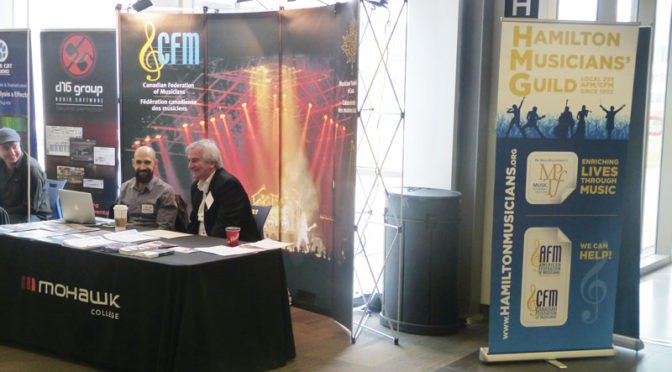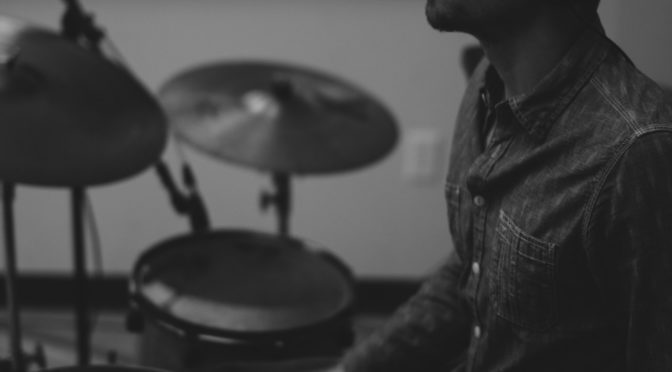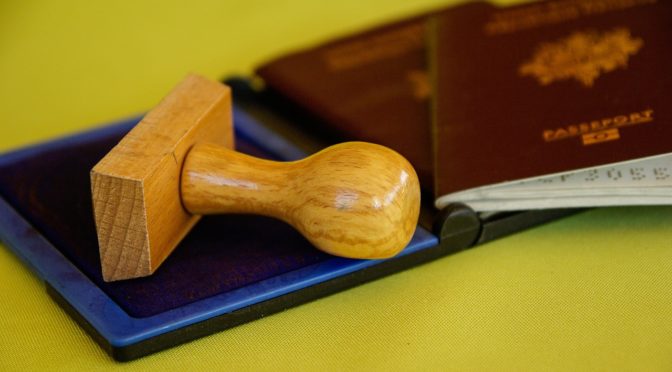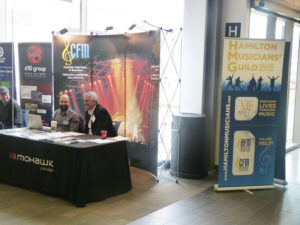
(L to R) Local 293 Executive Board Member Ryan McKenna, CFM Electronic Media Supervisor Daniel Calabrese, and Local 293 President Larry Feudo man the CFM Booth at Mohawk College’s Music Career Day.
On May 1, members of the AFM participated in the first annual Music Career Day at Mohawk College in Hamilton, Ontario. Attended by more than 600 high school and college students, the event presented more than a dozen panels. Three live bands, two of them comprising entirely Local 293 (Hamilton, ON) members, provided entertainment. For more information on the event, including panelist bios please visit https://www.mohawkcollege.ca/music-career-day-hamilton.
Hamilton Musicians’ Guild, Local 293, President Larry Feudo, Secretary-Treasurer Brent Malseed, and AFM International Representative Allistair Elliott served as panelists on a workshop entitled “Introduction to the Hamilton Musicians’ Guild,” moderated by Local 293 2nd Vice President Janna Malseed. Some of the topics covered were: the history of Local 293, benefits and services to members, contracts for live performances/recordings, intellectual property rights, US work permits for Canadian musicians, the MPTF, and the Lester Petrillo Fund. The theme was the importance of being part of a collective for a stronger voice in issues that affect all musicians at the local, national, and international levels.
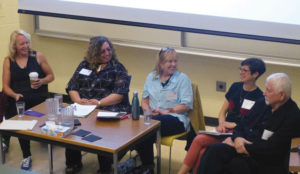
The Women in Music panel was popular with students. (L to R) are: drummer Amy Di Nino of Local 226 (Kitchener), keyboardist/vocalist Lily Sazz of Local 293 (Hamilton, ON), singer/songwriter Lori Yates, disc jockey Rachael Henderson (aka DJ Donna Lovejoy), and manager/producer Robert Missen.
A CFM booth at the Music Career Day Vendor Marketplace, was manned by CFM Electronic Media Supervisor Daniel Calabrese with the assistance of Local 293 First Vice President Reg Denis and Executive Board Members Ron Palangio and Ryan McKenna. They handed out AFM/CFM informational pamphlets and answered many questions about the benefits of AFM membership. Mohawk College Music Student Raul Gutierrez-Ruiz, who is interning at the Local 293 office, helped the team and took photographs.
Among the more than a dozen workshops and panel discussion topics were career pathways, women in music, film scoring, royalties and licensing, and funding sources. The workshops were dialogue starters with something of interest to everyone. Among the panelists were Local 293 members Lily Sazz, Andre Bisson, and Janna Malseed; Amy Di Nino of Local 226 (Kitchener, ON); Pat Collins of Local 149 (Toronto, ON), and Dusty Micale of Local 802 (New York City).
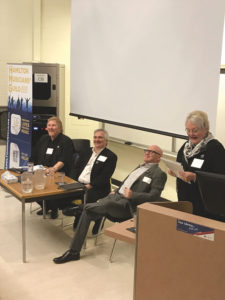
(L to R) At a workshop, Local 293 Secretary Brent Malseed and President Larry Feudo, AFM International Representative Allistair Elliott, and Local 293 Vice President Janna Malseed (moderator) introduced students at Mohawk Colleges’s Music Career Day to the union.
“Music Career Day was an excellent opportunity for our officers to interact with the students and network with the other panelists to make them aware of what we do as a union. As a result of this event, three new members joined Local 293 the day after,” says Brent Malseed.
The event, designed to offer networking opportunities and unique workshops/panel discussions for aspiring musicians and industry professionals was created with support from Mohawk College, Hamilton Music Community, and the City of Hamilton.
The Hamilton Music Advisory Team (HMAT) has close ties to Local 293 through Janna Malseed’s position as vice chair of the HMAT committee. Made up of local music industry representatives with eclectic musical backgrounds, HMAT assists with the city’s music strategy and is focused on “cultivating music creation and talent and growing audiences and appreciation of music.” For more information on the HMAT visit https://www.hamilton.ca/hamilton-music-film-office/music-in-hamilton/hamilton-music-advisory-team.
At the closing ceremony, Local 293 President Feudo and Secretary-Treasurer Malseed presented second-year Mohawk College music student James Degeer with a cheque representing the local’s donation to the Richard Newell (King Biscuit Boy) Scholarship, given annually to outstanding music students at Mohawk.
******
To see video highlights from Mohawk College Career Day visit:
www.hamiltonmusicians.org/news-events
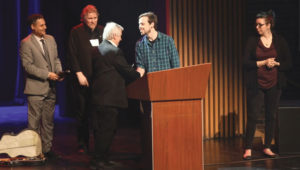
At Mohawk College’s Music Career Day closing ceremony, student James Degeer was presented with a cheque representing Local 293’s contribution to the Richard Newell Scholarship. (L to R) are: Mohawk College Associate Dean of Media & Entertainment Kurt Muller, Local 293 officers Brent Malseed and Larry Feudo, and Degeer.


